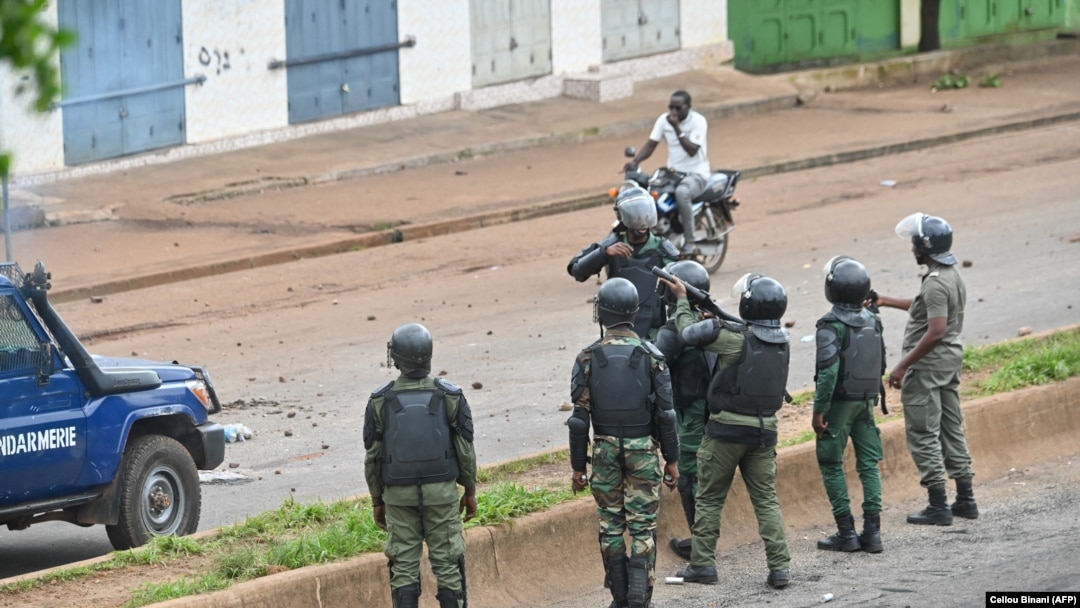the FNDC, a coalition of political parties, trade unions and civil society organizations, called for fresh protests in messages posted on social media Saturday. The junta banned the group earlier this month.
During Wednesday's banned demonstration, police were heavily deployed around the city, and demonstrators in one flashpoint suburb of Conakry hurled stones at the security forces who retaliated with teargas.
The alliance staged rallies on July 28 and 29 in which five people were killed. It called for the demonstrations last Wednesday -- also forbidden by the junta -- at which the two teenagers were shot dead.
Ibrahima Balde was killed by a projectile fired by a member of the security forces in Wanidara, a suburb of Conakry that has been the scene of clashes, his father Mohamed Cherif told AFP.
A relative of the young man, speaking on condition of anonymity, said he was hit by a soldier's bullet as the junta leader's motorcade passed through the neighbourhood.
Oumar Barry, a 17-year-old secondary school student, died later in nearby Koloma district. "They shot him in the stomach in Koloma," said his neighbour, Pathe Diallo.
The poor but mineral-rich state has been ruled by the military since a coup last September that ousted President Alpha Conde, in power since 2010.
In May, the junta banned all protests and on August 6 decreed the dissolution of the FNDC.
The FNDC spearheaded protests against Conde while he was in power, fiercely opposing his bid for a third term that it said was unconstitutional. The demonstrations were often brutally repressed.
Since the coup, the group has turned its focus on the junta, progressively amplifying its concern over human rights and the pace of return to civilian rule.
Doumbouya has pledged to hand over power to elected civilians within three years -- a timeline that fellow West African states want accelerated.



